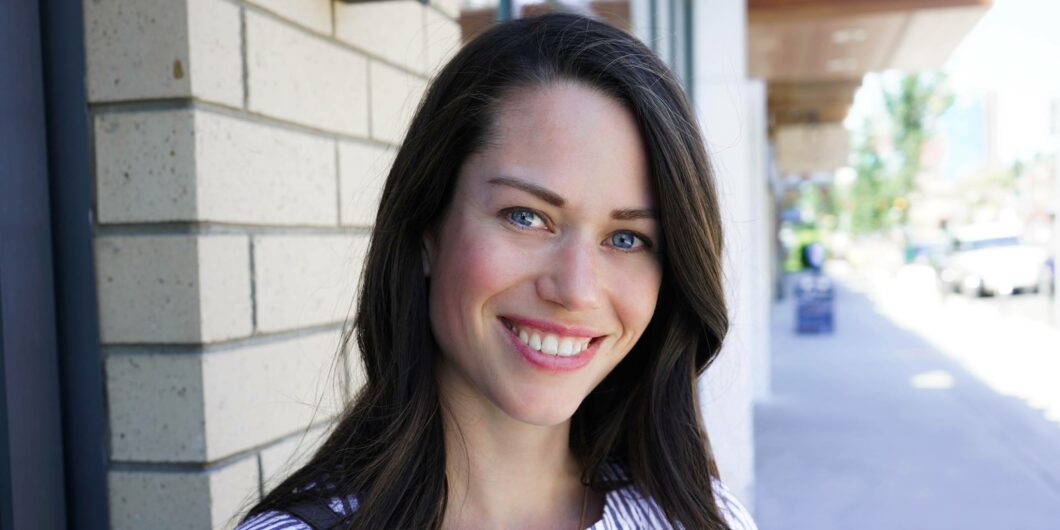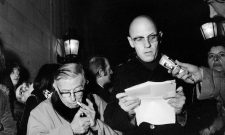San Francisco's school renaming exemplifies a rejection of nuance that deprives citizens of a duty of civic life: talking with one another about the good.
Cancel Culture Canadian Style
The mob came for Caylan Ford on March 18, 2019, when she was forced to resign her candidacy for a seat in the Alberta legislature. She was running for the United Conservative Party (UCP) and, indeed, widely considered a star candidate, though this was her first foray into elective politics. She was in a tough race, facing not only the incumbent Minister of Justice, who represented the left-wing New Democratic Party (NDP), but also the leader of the centre-left Liberal Party, which was historically strong in the constituency of Calgary-Mountain View, where Caylan was running. But despite the strength of her opponents, she had raised lots of money, attracted many campaign workers, and was thought to have a good chance of winning—until the mob came.
Before her campaign blew up, Caylan’s life had seemed like one success after another. Born in 1986, she got an Honor’s degree in Chinese History at the University of Calgary, followed by a Master’s in International Relations at George Washington University, followed by another M.A. from Oxford in International Human Rights. While she worked on and off as a consultant to the Canadian Department of Foreign Affairs (now called Global Affairs), she published prolifically in academic journals and wrote two documentary movies about the repression of Falun Gong in China. One of these, Letter from Masanjia, about life for Falun Gong prisoners in a Chinese re-education camp, won numerous awards. And while doing all this, she found a supportive husband (also a filmmaker), gave birth to two children, and maintained her Hollywood good looks.
Why in God’s name did she want to go into politics? She later said it was because she had learned, as a consultant to government, that politicians make the real decisions (the authors of Yes Minister might disagree), and she wanted to be part of that. Fair enough, but I don’t think she realized how dangerous and degrading contemporary politics has become.
As described at length in When the Mob Came, her troubles stemmed from a brief friendship in 2017 with an Ontario man named Karim Jivraj, who had a cosmopolitan education somewhat like Caylan’s (he had studied at Cornell and the Sorbonne). Jivraj had been active in the Ontario Conservative Party and had run for office, which matched Caylan’s growing interest in getting into politics on the conservative side. They had long philosophical discussions via Facebook Messenger, which Jivraj later used against her.
For reasons that are still unclear, Jivraj turned against Caylan and became obsessed with undermining her. When Caylan moved back to Calgary, Jivraj followed. When several attempts at spreading rumors about her in Calgary failed, he turned to PressProgress, an NDP front based in Ottawa. PressProgress is an Internet media outlet that presents itself as a source of independent journalism but is really an organ of the NDP, mediated through the Broadbent Institute. Jivraj took extracts from his Facebook conversations with Caylan to PressProgress, which released them in a pseudo-news story on March 18, 2019, the day before the Alberta election campaign was due to begin. (Unlike American campaigns, Canadian campaigns take place in short, legally defined periods, though candidates may engage in some activities beforehand.)
The highly torqued PressProgress story did not identify Jivraj as the source, although that was obvious to Caylan. Its essence was expressed in one malicious sentence: “Caylan Ford, who is seeking to represent the riding of Calgary-Mountain View in the 2019 provincial election, also expressed anxiety over ‘the replacement of white peoples in their homelands’ and suggested ‘Western culture’ would collapse if ‘another race’ takes over in Europe and North America.” Based on this limited and flimsy evidence, PressProgress painted Caylan as a racist and white supremacist. Jivraj was quoted without being identified: “[Jason Kenney, UCP Leader] needs to disqualify her immediately.”
Here a bit of explanation may help American readers. American political parties have leading figures, but they do not have leaders in a legal sense. In contrast, all Canadian parties, both national and provincial, have leaders with legally defined responsibilities and powers. One of those powers is to approve or reject candidates who want to run under the party label. Caylan Ford was nominated to run for the Alberta Legislature by a grassroots process somewhat like an American primary, but UCP Leader Jason Kenney had to sign her nomination papers to make it official. He also retained the power to withdraw the party label from her before and during the campaign.
In the United States, candidates run as individuals, but in Canada, candidates run as members of a team. Aspersions cast on one candidate inevitably wash over onto other members of the team, and leaders are expected to remove candidates, the sooner the better, who are perceived as damaging the team. In the game of politics as played in Canada, parties conduct opposition research on their opponents, but usually hold the most salacious bits to be released late in the campaign when there is little time to frame a coherent response—somewhat like the legendary American “October surprise.” While ostensibly attacking an individual candidate, the real point is to attack the leader for approving that person in the first place.
It will probably be a decade before Caylan can return to politics, if indeed she ever wants to. In the meantime, her educational work is equally important.
As soon as the PressProgress story came out, Alberta NDP Leader Rachel Notley, echoed by left-wing voices throughout the media, demanded that Jason Kenney withdraw his approval of Caylan Ford’s candidacy. Knowing Kenney would do so, Caylan resigned that same evening. While not apologizing for white supremacist views that she did not hold, she offered up the usual rationale of not wanting to create a distraction for the UCP campaign.
There was little doubt that Kenney would have acted quickly. Wildrose, a predecessor party of the UCP, had lost the 2012 Alberta election when opponents uncovered a candidate’s statements about gays and lesbians perishing in “a lake of fire.” It did not seem to matter that the candidate was a Protestant preacher and had been giving a sermon using allegorical language from the Book of Revelation (19:20, et al). When the clamor arose for the Wildrose party leader to disown the candidate, she repudiated his views but did not expel him, citing his freedom of speech. It was perhaps a noble sentiment, but it also caused a sharp drop in Wildrose support in the last week of the campaign. It was a textbook case of how opposition research can be used in Canadian politics to discredit not just a candidate but the leader, and indeed the whole party.
Jason Kenney and the UCP went on to win a resounding victory in 2019, while Caylan became roadkill. She had given up her career in Eastern Canada to return to Calgary, and now she was unemployable in her home city. The label of “white supremacist,” no matter how unfairly applied, was just too toxic. That explains the despondent mood of When the Mob Came.
In the documentary, she talked about the “feeling of uselessness” when she couldn’t find a job. She felt she had “turned into a ghost.” She never seriously contemplated suicide, she said, but she sometimes thought longingly of death. “I stared into a void,” she said, “and I liked what I saw.” Her only consolation seemed to be the Socratic teaching that it is better to suffer wrong than to commit it.
But she got out of the Slough of Despond and proved herself a survivor and a fighter. When the Mob Came is her way of telling the truth about her accuser and the accusations, a truth for which there was no time during the madness of a political campaign. She sued Jivraj, who was still trying obsessively to undermine her. This year she won a permanent restraining order against Jivraj, who was also fined $10,000 for contempt of court. As well, she has launched a defamation suit for $7 million against the NDP, PressProgress, the Canadian Broadcasting Company, the Toronto Star, and others. While defamation victories against deep-pocket defendants are not unheard of, they are few and far between in Canadian courts. But even if the odds are long, the litigation is a way of making her case to the public.
Beyond her attempts at vindication, she has founded a K-12 Charter school, the Calgary Classical Academy. (Alberta is the only province in Canada that allows Charter schools.) It has two campuses in Calgary and plans to open one soon in Edmonton. The school’s educational philosophy is inspirational: “A classical education aims to preserve, transmit, and build upon the wisdom of past generations … and is centred on great and enduring works of art, literature, and philosophy.” Some parents want that sort of education for their children, as shown by the school’s quick success.
Ironically, she owes her ability to open a new charter school to former Premier Jason Kenney. Before Kenney led the UCP to victory in the 2019 election, the previous NDP government had been slow-walking new Charter applications. One of Kenney’s first moves as Premier was to open the gates.
It will probably be a decade before Caylan can return to politics, if indeed she ever wants to. In the meantime, her educational work is equally important. Like their American confrères, Canadian conservatives are highly critical of public schools, which are almost totally under the thumb of teachers’ unions. Charter schools, private schools, and homeschooling provide opportunities for the sort of education that conservatives deem essential to the restoration of political sanity.



